Advanced recycling technology
Turning more of the plastics we use every day into valuable products
Plastics benefit society in many ways. Because they're lightweight, versatile and durable, they're often the material of choice when compared with alternatives such as paper, aluminum or glass. They're expected to play a vital role in a net-zero future because they're needed for new lower-carbon technologies.
The advanced recycling process converts plastic waste back into its molecular building blocks, which then become the raw material for making new plastics, transportation fuels and other products. It’s a proven technology that can be used around the world to improve recycling rates and support a more circular economy.
Latest news and information
2 min read
•3 min read
•2 min read
•Why does advanced recycling matter?
Less than 10% of plastics are recycled today. The rest is incinerated, put into a landfill or winds up in the environment.
Advanced recycling complements traditional recycling methods and helps address plastic waste by enabling the breakdown of more kinds of plastic and converting them back into the molecules needed to make new products. It’s also helping users of plastic such as packaging manufacturers, beverage companies and restaurants meet their sustainability goals by incorporating more circular content into their products.
Advanced recycling: A different way to handle used plastics
What we're doing now
Our advanced recycling facility in Baytown, Texas, has been operating since December 2022, with the capacity to process up to ~250 million pounds of plastic waste per year thanks to the recent startup of our third unit.
This facility is already helping to support a more circular economy for plastics.
We're investing in technology that may one day help prevent more than one billion pounds of plastic waste from being burned or buried.
Learn how we’re expanding the plastics lifecycle
Explore more
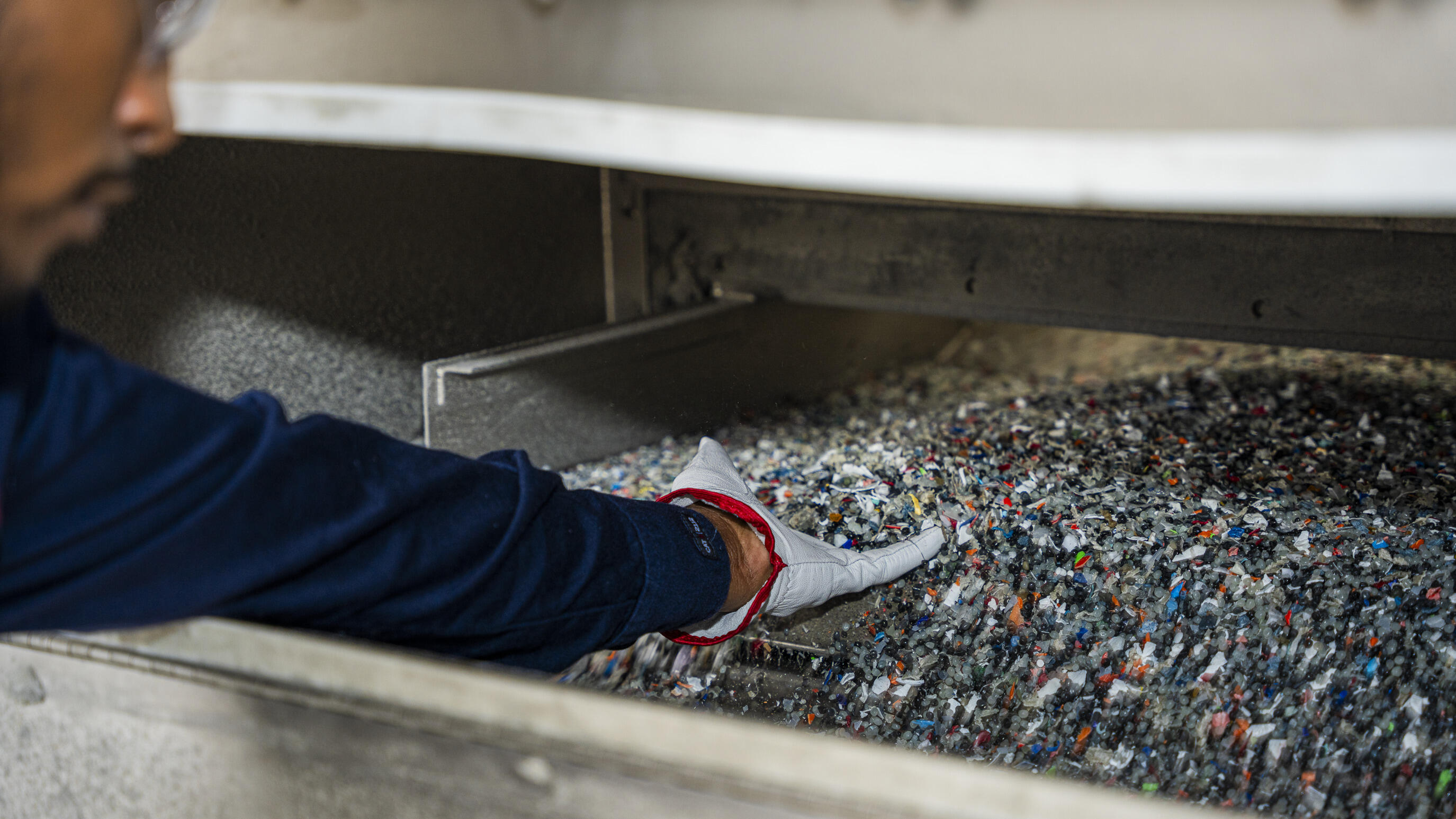
Baytown becoming one of the largest advanced recycling operations in the world
2 min read
•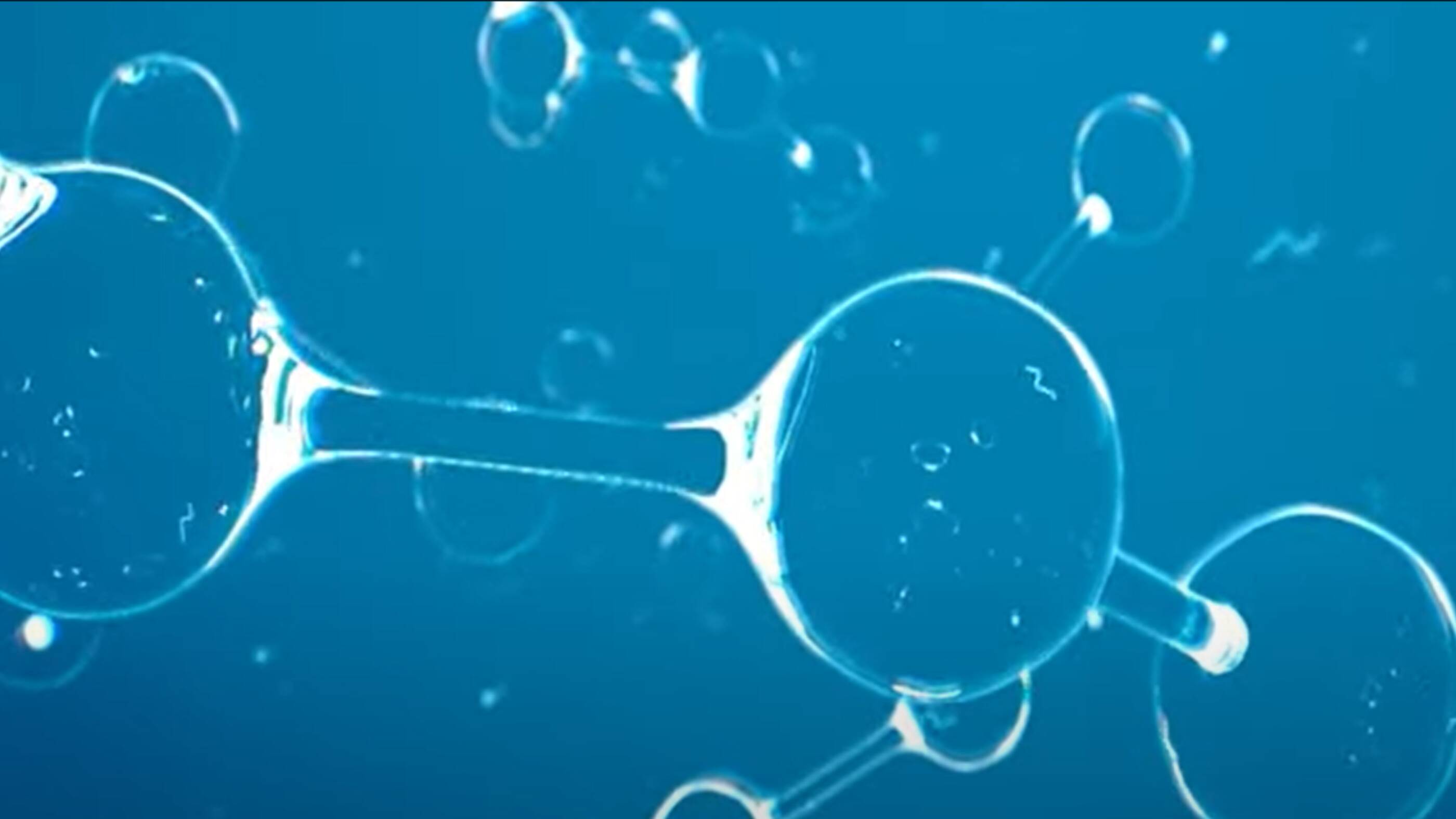
New research shows how popular plastic packaging compares to alternative materials
3 min read
•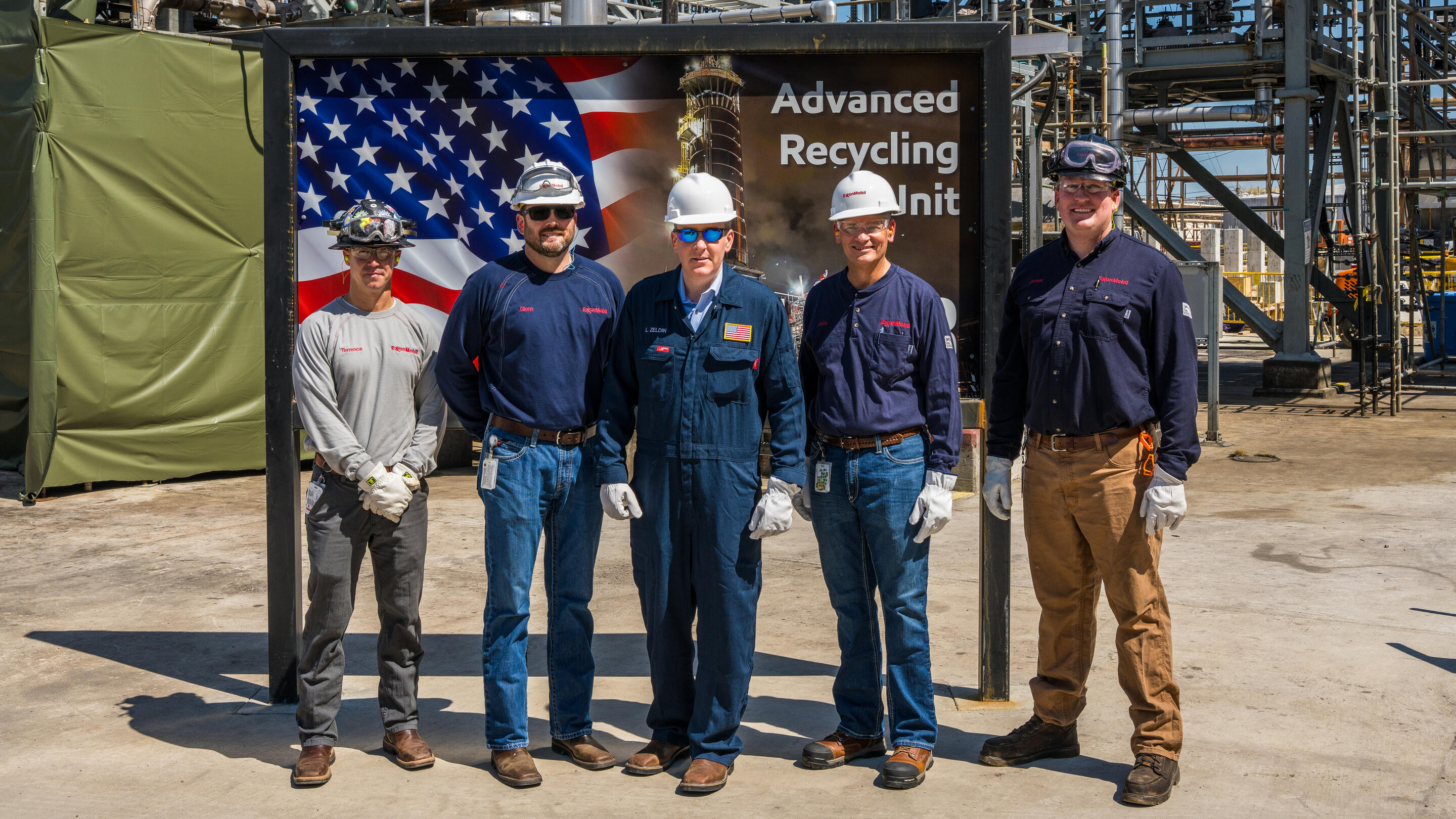
EPA Administrator Lee Zeldin tours our advanced recycling operations in Baytown
2 min read
•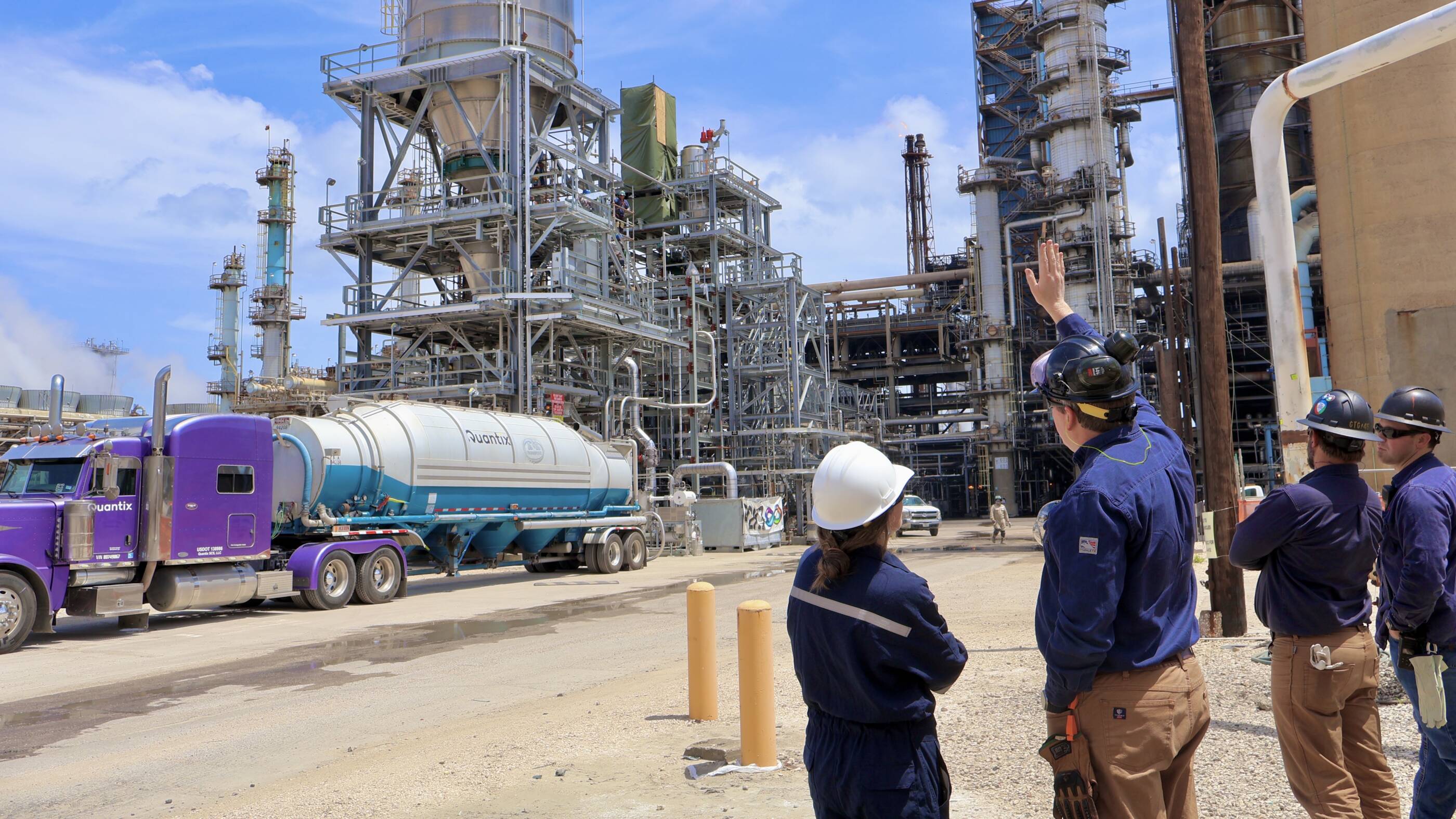
Doubling down on double capacity: our second advanced recycling unit is up and running in Baytown!
2 min read
•
We’re increasing our advanced recycling capacity to 500 million pounds annually—equivalent to nearly 25 Eiffel Towers!
2 min read
•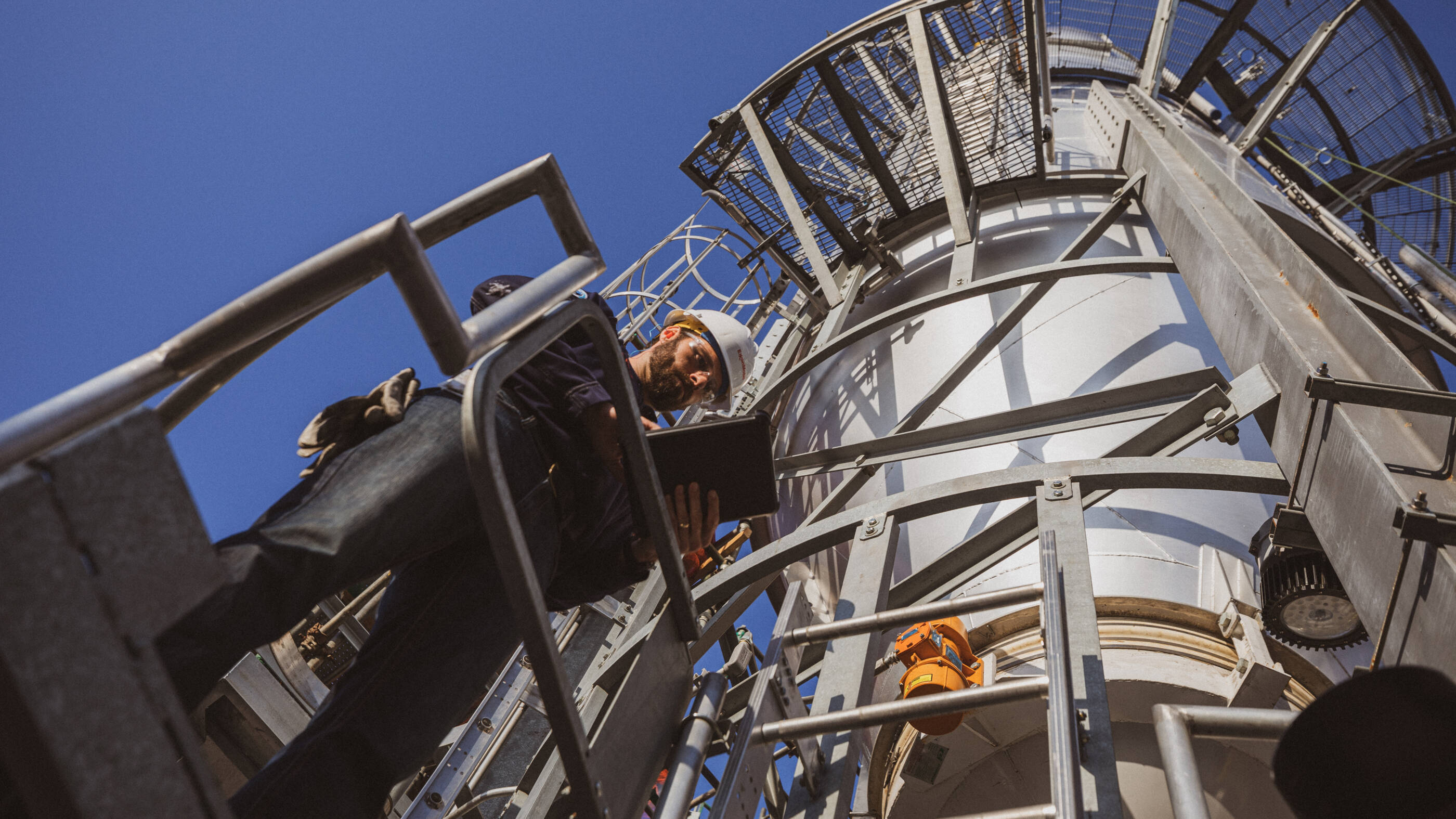
ExxonMobil to expand advanced recycling capacity
4 min read
•Materials for modern living


